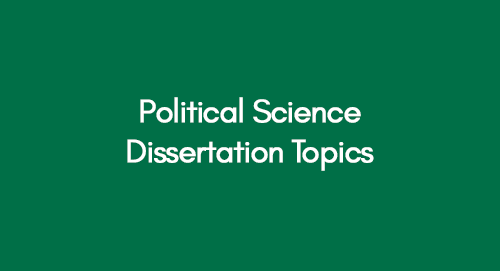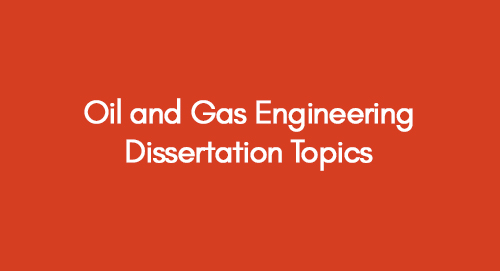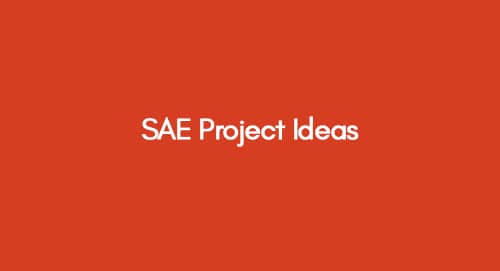Topics 11: Examining the Impact of Oil and Gas Production on Sedimentary Contamination Levels in the UK
Research Aim: The primary aim of the study is to assess the impact of increased oil and gas production on new environmental pollution issues in the UK. The primary issue studied is the management of produced waters disposed of deep well-injection causing induced seismic activity. The research analyses historical records of sediment pollution associated with oil and gas production in the UK. It highlights environmental risks associated with produced water and contamination of sediments.
Topic 12: Assessing the Impact of Environmental Policy on Investment Efficiency: Examining the Oil and Gas Sector of the UK
Research Aim: The study intends to assess the impact of loosened environmental policies on the firm performance of the UK’s oil and gas sector. The research uses the Porter hypothesis by adapting it to investment efficiency to measure corporate performance. The research discusses the long-term effects of loose environmental policies on the UK’s oil and gas sector. The data is collected using the historical firm performance of UK companies based on governmental policies. Data is analysed using structured equation modelling.
Topic 13: Incident Assessment and Attack Patterns of Cyber-Attacks on Oil and Gas Companies
Research Aim: The study aims to assess the documented cyber-attacks on oil and gas companies, highlight the consequences of attacks, and assess the vulnerability taxonomy of incidents. The study surveys cyber-attacks on oil and gas sectors – upstream, midstream, and downstream from the 1990s to 2020. The study maps and catalogues these attacks and their types. Data is collected from documented attacks and analysed using the methods outlined.
Topic 14: Assessing the Need for Risk Management Examination in Oil and Gas Industries
Research Aim: The primary aim of the study is to assess the need for risk management in oil and gas projects. The study asserts that large-scale projects in the oil and gas industry face operational problems from a deficit of risk management measures. The research identifies the evaluation and prioritises risks of upstream oil and gas sectors in developing economies. The research acquires firm-level data from developing economies and analyse the data using inferential statistics.
Topic 15: A Comprehensive Review of the Effectiveness of The Quality Management Systems in The Oil and Gas Sector of the UK
Research Aim: The aim of this research is to identify the practices being applied in the oil and gas sector in the UK and how these practices are helping the teams to manage the quality and efficiency of oil and gas products. The scope of this study also applies to upstream as well as downstream manufacturing processes. The research methodology adopted in this particular study is the comparative analysis of various quality management systems employed at various organizations across the UK. The study presents its finding as a recommendation for the best-suited system, and changes can be made to improve the QMS.
Topic 16: A Comparative Study of Upstream Cracking Processes Used in the Cracking of Texas Crude Oil
Research Aim: The aim of this comparative research is to identify the most suitable cracking process for downstream cracking of Texas crude oil. The study compares the results to identify a better process and provide suggestions for the improvement of the process. The main instrument of research includes process analysis, upstream processing turnaround time, and quality of the upstream products as a result of the cracking process. The research can be further extended to improve the processing capabilities of various other crudes.
Topic 17: An Analysis of the Environmental Impacts of Oil and Gas Drilling Operation on the Local and Global Ecology
Research Aim: The aim of this study is to analyse the harmful and striking impacts of the oil and gas drilling processes on the environment, ecosystem, and biodiversity of the region in which wells are drilled. The research analyses on-shore and offshore drilling rigs and how they impact the local environment as well as the community. The researcher conducts a detailed analysis of the drilling site, by-products of the rigging and drilling process, emissions into the environment, etc. The study sheds light on the hazards of careless drilling activities on the ecology.
Topic 18: Examining the Economic Response of US Oil and Gas Industry to the Post-COVID Conditions
Research Aim: The primary aim of the study is to examine and assess the economic reactions of the US gas and oil industry producers during post-covid conditions and the environment. The study looks to assess the effect of COVID-19 on returns and volatility in the oil and gas industry during a crisis. The research assesses firm returns and returns volatility using a sample of US oil and gas firms. The data is analysed using a logarithm operator model to assess the total deaths per million in comparison to stock data from US oil and gas producers.
Topic 19: A Comparative Study of The Costs and Financial Outcomes of the On-Shore and Offshore Oil Wells and Gas Wells
Research Aim: The primary aim of this study is to investigate the financial feasibility of offshore rigs. The research employs statistical tools to monitor drilling data comprising of production of the well, cost of operations, selling prices, and market demand of the offshore drilling products. The researcher analyses the financial outcomes of the project.
Topic 20: A Study of Oil and Gas Supply Chain Operations: What Is the Best Supply Chain Solution for the Oil and Gas Industry?
Research Aim: The aim of this research is to investigate the supply chain of the oil and gas industry. The research studies the TATs, demand and supply forecasting, as well as demand-supply gas for various oil and gas projects.
Topic 21 : Integrating and Simulating Data of Seismic Attributes For Drilling Strategies: A Virtual Intelligence Strategy
Research Aim: The study focuses on the significance of field development strategies in the oil and gas industry's standard engineering practices. Research also explores how reservoir simulation methodology is utilised to generate an effective field development plan.
Topic 22: Mud Pit Analysis of Drilling Reserves in Iran: Awareness and Environmental Effects
Research Aim: The study's main aim is to examine the mud pit pollution generated by drilling at one of the Iranian onshore drilling sites. In this investigation, the study is carried out in two phases: the monitoring and sampling of the heavy metal contents in mud pit liquids (cadmium, nickel, chromium, and aluminium) shall be performed after and during drilling operations on the selected drilling site.
Topic 23: Analysis of the Chinese Petroleum Industry's Economic Impact and Challenges: A Geopolitical Review
Research Aim: The proposed study aims to analyse the indirect, direct, and induced effects of China's petroleum sector on the local as well as the global economy. This dissertation topic in petroleum economics also looks at the Chinese economy's major challenges, particularly concerning geopolitical strategies.
Topic 24: A Review of the Petroleum Exporting Countries’ Economic Development - A Panel Autoregressive Distributed Lag Model (ARDL) Panel Methodology
Research Aim: The MBA oil and gas management dissertation topic aims to analyse the relationship between petroleum production (PP) and gross domestic production (GDP) for Petroleum Exporting Countries (OPEC) during the span of 2000-2020
Topic 25: Analysing the Quantitative Risk Analysis (QRA) to Quantify Uncertainty in the Field of Drilling, including Learning, and Operations
Research Aim: This study provides background and comments on using strategies for risk analysis in the oil and gas sector. Applications designed for drilling operations are given particular attention. A literature review highlights publications mainly developed for risk analysis operations of oil and gas well drilling.
Topic 26: A Critical Analysis of Current Safety Measures and Strategies being Applied for the Protection of Employees in the Oil And Gas Industry: A Case Study
Research Aim: The purpose of the study is to examine if the security requirements of the workers in the oil and gas sectors are being followed. What are the difficulties in keeping social distance among workers? The study aims to collect both primary as well secondary data during the study. The Primary data is collected from the industry practitioners (via a questionnaire). In contrast, the secondary data is collected using the most recent research articles and books.































